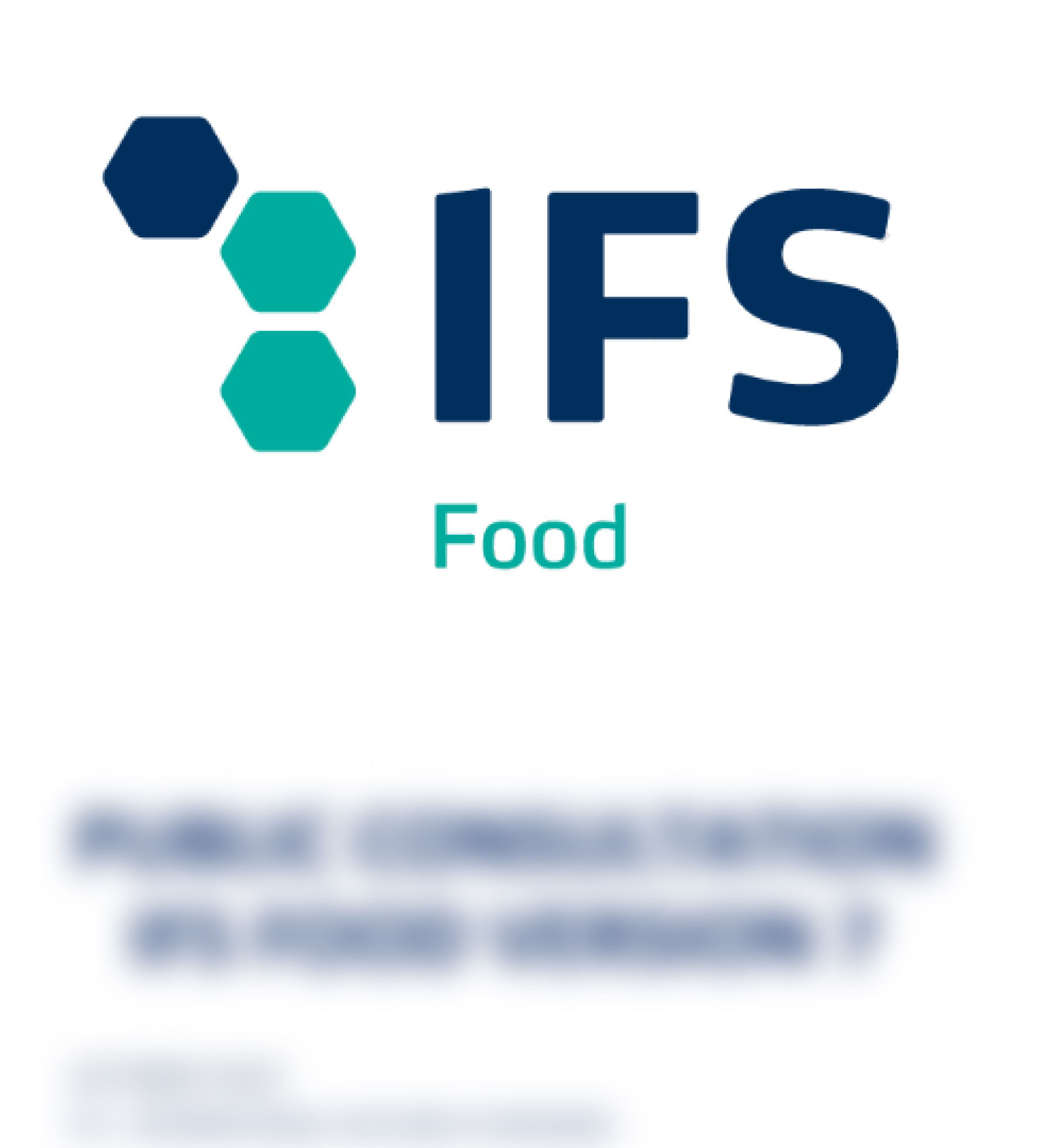You may be familiar with several food scandals from the past. With an IFS certificate, you win your customer’s trust and gain an advantage over your competitor. The advantage of the IFS standard is that it is very clear about what you must comply with and what you need to have.
One of the components of this system is the risk inventory. By visualizing the risks and bringing them to an acceptable level, you prevent reputation damage and the chance of getting involved in a recall is already much lower. Many customers already require certification. You should also ask your suppliers to take appropriate assurance measures.
IFS stands for International Featured Standards and was developed in 2003 with the aim of ensuring the quality and safety of the food chain for retailers and wholesalers. The IFS standard has its origins in Germany, but at a later stage French and Italian trade and retail organizations also joined the standard. This is why IFS is often seen as the German/French/Italian counterpart of the English BRC standard.
An important difference between the IFS standard and its English counterpart BRC is that IFS also requires all your suppliers to be IFS certified. If you work with suppliers who do not have IFS, you must present this to your (future) client. Only when the client agrees with this situation, does IFS approve. In this way, the organization behind IFS tries to enforce food safety compliance for everyone in the food chain.
There are 8 different standards:
- IFS Food: This standard applies to companies that produce their own food or companies that package loose food. It is also applicable when there is a risk of contamination during primary packaging.
- IFS Progress (previous name Global Markets Food): This standard applies to retail and small businesses that produce industry-branded food products. This standard was developed with the ultimate goal to get IFS Food certification.
- IFS Wholesale/Cash & Carry: This standard was developed for wholesalers and cash & carry companies. These companies are often seen as a link between the producing companies and the commercial customer. Depending on the company’s core business, a customer tailor-made checklist applies.
- IFS Logistics: This standard applies to all logistics activities, both for food and non-food products. Think of loading, unloading and transport. The standard applies to all types of transport.
- IFS Global Markets Logistics: Implementing this standard facilitates market access locally. It creates mutual acceptance throughout the chain and provides structure for guidance, development and assessment of small and less developed logistics service providers. Again, this standard has been developed with the ultimate goal to get IFS Logistics certification.
- IFS Broker: This standard applies to companies engaged in trading activities. Products are purchased and delivered directly to customers.
- IFS HPC: This standard was developed to ensure product safety, reduce expenditure and provide transparency throughout the production chain of household and personal care products.
- IFS PACsecure: If you are a manufacturer and processor of primary and secondary packaging, this standard applies.
A new version of the standard is published every few years, with new aspects added each time. This keeps you improving continuously. At least once every 3 years, the IFS audit should be carried out unannounced.
My services are provided through a combination of advice and assistance. I ensure that all aspects of the standard are covered. I can provide several formats that can then be adapted to your company’s situation. The advantage here is that your employees are closely involved, and they also gain substantive knowledge of the system. You remain responsible for implementing the necessary steps. For example, if I visit your company 1 day a week, I can closely monitor and follow up on the progress.
Of course, I can also carry out all the tasks myself. This will speed up the certification process, but the drawback is that employees will have all kinds of procedures forced upon them, which can lead to resistance. There is a formula: effectiveness = quality x acceptance. If employees do not fully accept the working methods, the system will not work effectively enough either. Of course, I also offer help when employees get stuck, or the process is too slow.

